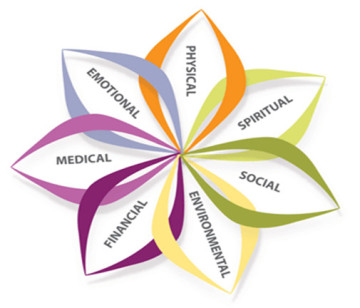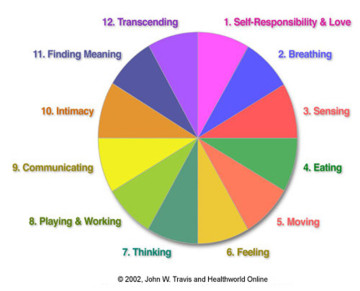Workshops
All workshops may be designed and tailored according to goals and aspirations of organizations and teams.
(2-Day Workshop)
Lydia shares her insights from having been deeply immersed in the Positive Psychology space for past dozen years facilitating hundreds of students, groups and clients in their quests for boosting wellbeing and personal resources. She has developed a keen understanding of the processes involved in Positive Psychology interventions and the supporting evidence base. This evolved from, and is integrated with, her extensive experience and expertise in the areas of sport and performance psychology, and psychology of health and wellness.
Interest in the science and practice of Positive Psychology (aka study of psychological wellbeing) has exploded in the past decade. The benefits of Positive psychology interventions have been increasingly recognized and embraced across wide spectrum of society, including in education and workplace, as well as in promoting personal wellbeing and development. More and more research is being conducted to test strategies that are designed to promote sustainable boosts to wellbeing, leading to building resilience and more flourishing lives. That is, Positive Psychology in practice is about being (feeling) and doing (acting) better.
Download the Positive Psychology in Practice Workshop Flyer
The movement was spearheaded by Martin Seligman in 1998 in his presidential address to the American Psychological Association. This was followed by a seminal article in American Psychologist along with Mihalyi Csikszentmihalyi (noted author on the psychology of flow) in 2000, and by his book Authentic happiness: Using the new positive psychology to realize your potential for lasting fulfillment (2002), and more recently by Flourish: A visionary new understanding of happiness and well-being (2011). The movement has rapidly grown and is now rich with publications, university courses, journals, conferences and applications to classrooms and boardrooms as well as in psychological and coaching practice.
The main driver of the Positive Psychology movement is to redress the imbalance that has dominated the field of traditional psychology – that has largely focused on the study of what is wrong with people and how to fix them (i.e., going from -10 to 0). In contrast, the focus of positive psychology is studying the nature of wellbeing and happiness and how it may be taught and developed (i.e., going from 0 to 10+). In short, it is the study of mental health (rather than mental illness). It is about understanding and creating more of what leads to flourishing in the optimal range of human functioning, rather than merely providing relief from languishing at the lower range of functioning.
This paradigm shift of focusing more on what is right with us rather than wrong has resonated far and wide. The vast ripple effect of the Positive Psychology movement has spawned great interest in the media as well as many bestsellers. It has led to the transformation of education and even public policy.
Contact Lydia for more information or to book next workshop.
(1-day Workshop)
Learn how to harness the power of imagination to create change and achieve personal and professional goals.
Imagination is one of the most powerful inner mental resources for self-development. It is especially effective for facilitating and accelerating change — whether adapting to change; or changing patterns of thought, behavior and feelings. Change of any kind doesn’t come easy. It is said that old habits die hard; and the best predictor of future behaviour is past behaviour. But history need not be destiny. Harnessing the power of imagination will increase chances for success in your clients, rather than leave success to chance.
The workshop will provide a practical guide to understanding and applying mental imagery across the spectrum of a client’s life – towards creating their best self, achieving their goals, and more efficiently eliminating obstacles in their path.
Case studies will be featured to demonstrate imagery applications. Participants will also be provided the opportunity to practice and discuss how imagery strategies can be incorporated in their lives, health and work.
Best to take creative control of your images, lest they get the best of you.
Much of how we are and what we do is dictated by images of our mind. That is, we tend to think, feel, and behave consistent with whatever self-image is most dominant at the time. We tend to recreate outer conditions to match our inner conditions. This is what explains how most lotto winners are in worse debt than ever within one year of their big win.
“Imagination is more important than knowledge.”(Albert Einstein)
The advantage of practicing mental imagery (aka creative visualization), is that it affords us the opportunity to practice that which we have little experience with. In doing so, we are actually boosting our inner repertoire – as the brain cannot tell the difference between what is perceived to be real or imagined (based on fMRI studies). Therefore, whatever one imagines, registers as actual experience and the information database of their reality. Of course, there are natural limitations, and this must be tested in real situations.
Fostering the practice of positive imagery in your clients will enable them to experience greater control over their destiny, to be less victim to their (unconscious) fears and conditioning. Such that, rather than reacting to situations and events, they will be in stronger position of creating according to the script they’d prefer to operate from – that is most aligned with their best self.
Neuroscience has demonstrated that mental imagery is a far more powerful technique than standard CBT (Cognitive Behavioural Techniques). That is, the reach of mental imagery extends far beyond words, and is the major portal of the brain for transformation and quantum leaping.
Technically, according to the science, applying mental imagery is virtually applied neuroplasticity.
Where there’s an image— there’s a way.
Contact Lydia for more information or to book next workshop.
Applying mental imagery to reaching your full potential.
Learn how to harness the power of your imagination to create change (and break bad habits) and achieve personal and professional goals.
Your imagination is one of the most powerful inner mental resources for self-development. It is especially effective for facilitating and accelerating change—whether adapting to change; or changing how you think, act (and react), and feel. Change of any kind doesn’t come easy. As they say, old habits die hard; and the best predictor of future behaviour is past behaviour. But history need not be your destiny. You can harness the power of imagination to increase your chances of success, or you can leave success to chance.
The Imagine workshop will provide a practical guide to understanding and applying mental imagery across the spectrum of your life—towards creating your best self, achieving your goals, and more efficiently eliminating obstacles in your path.
Case studies will be featured to demonstrate imagery applications. Participants will also be provided the opportunity to practice and discuss how you might incorporate imagery strategies in their lives, health and work.
Best to take creative control of your images, lest they get the best of you.
Much of how we are and what we do is dictated by images of our mind. That is, we tend to think, feel, and behave consistent with whatever self-image is most dominant at the time. We tend to recreate outer conditions to match our inner conditions. This is what explains how most lotto winners are in worse debt than ever within one year of their big win.
Imagination is more important than knowledge.~ Albert Einstein
Imagination is more important than knowledge.~ Albert Einstein
The advantage of practicing mental imagery (aka creative visualization), is that it affords us the opportunity to practice that which we have little experience with. In doing so, we are actually boosting our inner repertoire—as the brain cannot tell the difference between what is perceived to be real or imagined (based on fMRI studies). Therefore, whatever you imagine, registers as actual experience and the information data base of your reality.Of course, there are natural limitations, and this must be tested in real situations.
So, if you would prefer to be more in control over your destiny, and less victim to your (unconscious) fears, then you need to take better control over the images of your mind. Such that, rather than reacting to situations and events, you are in stronger position of creating according to the script you’d prefer to operate from – that is most aligned with your best self.
Neuroscience has demonstrated that mental imagery is a far more powerful technique than standard CBT (Cognitive Behavioural Techniques) that involve self-talk and affirmations. That is, the reach of mental imagery extends far beyond words, and is the major portal of your brain for transformation and quantum leaping.
Technically, according to the science, applying mental imagery is virtually applied neuroplasticity.
Where there’s an image – there’s a way.
Contact Lydia for more information or to book next workshop.
Integrating ancient wisdom with emerging science of Positive Psychology for promoting health, wellbeing and resilience.
Lydia shares her insights from having been deeply immersed in the Positive Psychology space for past dozen years facilitating hundreds of students, groups and clients in their quests for boosting wellbeing and personal resources. She has developed a keen understanding of the processes involved in Positive Psychology interventions and the supporting evidence base. This evolved from, and is integrated with, her extensive experience and expertise in the areas of sport and performance psychology, and psychology of health and wellness.
The benefits of Positive psychology activities have been increasingly recognized and embraced across wide spectrum of society, including in education and workplace, as well as in promoting personal wellbeing and development. More and more attention is being directed to implementing strategies designed to promote sustainable boosts to wellbeing, leading to building resilience and more flourishing lives. That is, Positive Psychology in practice is about being (feeling) and doing (acting) better more consistently.
Contact Lydia for more information or to book next workshop.
Lydia draws on insights based on behavioural medicine research and practice.
Topics include:
Mental Skills Applied to Healing and Recovery (Lydia Ievleva) Listen to “Mental Skills Applied to Healing and Recovery”.
Inner Healing (Lydia Ievleva) Listen to “Inner Healing” guided imagery.
Contact Lydia for more information or to book next workshop.

Then join a Wellness Coaching Group
Creating lasting change requires more than just the will to succeed. It requires the way that works, and is sustainable over time. We all know that quick fixes don’t work, and you cannot rely on will alone to achieve success.
Wellness Coaching draws from a deep well of theory, research and practice to assist you with getting and staying on track with your goals, ranging from improving health conditions to optimizing health and wellbeing.
By participating in the Wellness Coaching Group you will learn effective strategies for creating lasting change in a safe and supportive environment, that is both cost effective and synergistic. You will be guided step by step through a process towards achieving the wellness goals that mean most to you.
The Wellness Coaching journey incorporates elements of the Wellness Wheel below, and includes the following:

Each week (after the first introductory week) will begin with a review and discussion of the weeks before; and finish with supportive guided imagery.
Contact Lydia for more information or to book next workshop.
Mental skills and strategies for optimizing performance in any arena—from the playing field to the boardroom.
Contact Lydia for more information or to book next workshop.
Relaxation and meditation practices for promoting health and wellbeing.
Relax to Max (Lydia Ievleva) Listen to “Relax to Max”.
Contact Lydia for more information or to book next workshop.